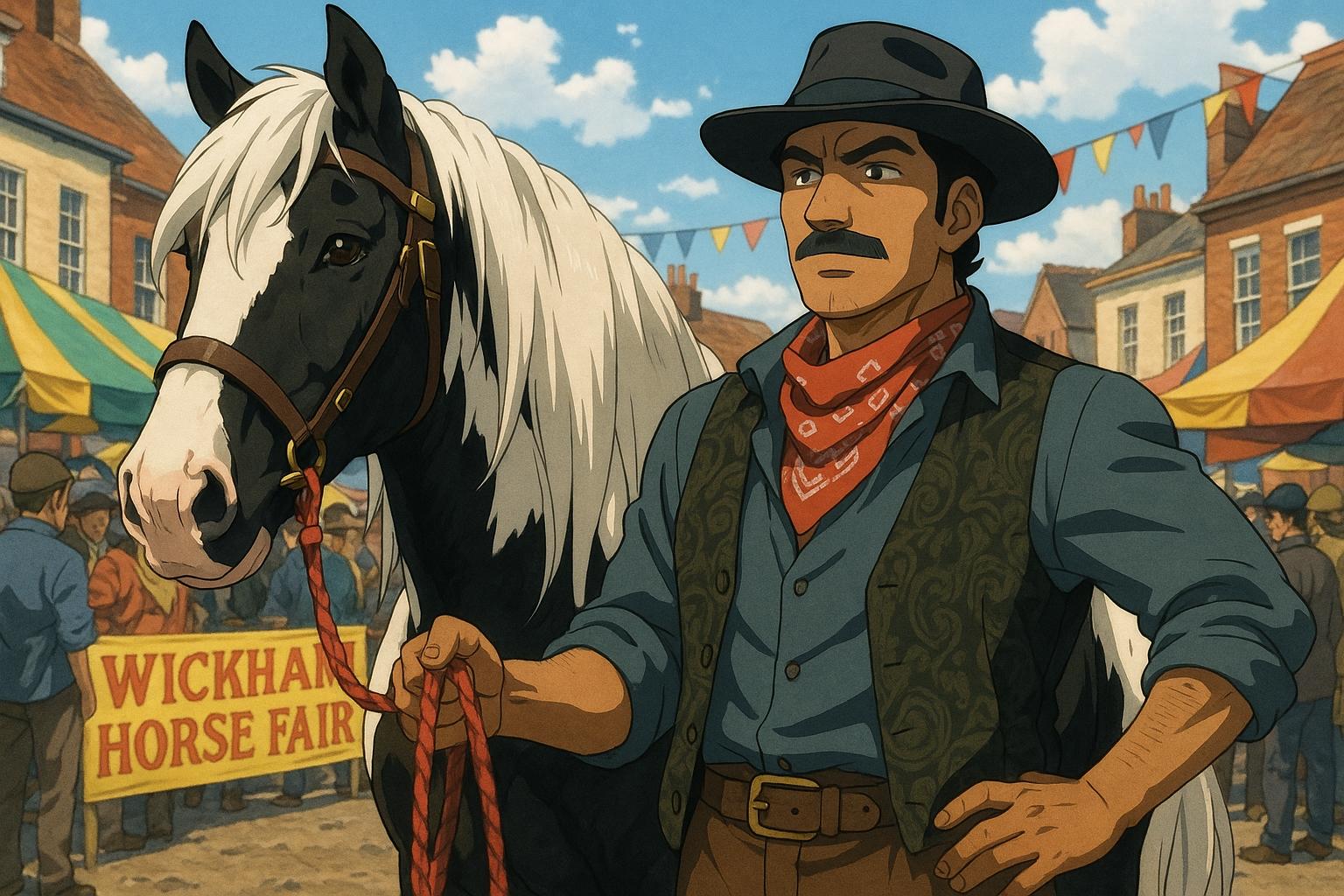At the heart of the picturesque Hampshire village of Wickham, the annual Wickham Horse Fair has once again stirred tensions between local authorities and the travelling community. This historic event, which celebrates over 800 years of tradition in horse trading, witnessed a significant presence of travellers who expressed their discontent regarding restrictions placed on local businesses by the police and council.
The recent fair, held on March 20, saw hundreds of travellers converging on Wickham, bringing with them a vibrant atmosphere steeped in cultural legacy. However, as shops and pubs were ordered to close for the day, many in the Romany and Traveller communities voiced strong objections. Jessy Goddard, a prominent horse trader, conveyed his frustration when he stated, “If they don’t let us run the fair our way, they’re gonna get problems.” His sentiments echoed those of many attendees who felt that shutting down local businesses not only challenged their ability to participate in the fair but also misrepresented their community’s reputation.
Historically, the Wickham Horse Fair has been enshrined in law since the 13th century when a royal charter was granted by King Henry III. This charter allows for the trading of horses, a practice that has evolved but remained integral to the identity of the travelling community. Goddard emphasised this historical right, asserting, “They can’t stop it; there’s no way they can stop it.” However, the police's recent insistence on maintaining order through closures has ignited concerns about public perception and the portrayal of travellers as inherently problematic.
Local law enforcement, while expressing the need to ensure public safety, acknowledged the complexities inherent in managing such an event. A local superintendent police officer noted the challenge of balancing the needs of the community with safety, highlighting a lack of central organisation among the travellers which complicates police efforts. In a bid to prepare for the influx, Hampshire Police implemented extensive road closures and deployed officers throughout the area, leading to a heavy police presence that some attendees felt was unwarranted and prompted tension.
Despite the restrictions, the event itself saw no reported incidents, indicative perhaps of the community's desire for peaceful cohabitation. Both police and members of the Traveller community acknowledged the misunderstandings and prejudices that often plague interactions. Many within the community advocate for greater understanding and connection with the non-travelling population, challenging stereotypes while insisting on their legal and cultural rights.
Elder members of the traveller community, such as 78-year-old Nelson Scott, voiced their longstanding struggles against discrimination. He denounced the fear and distrust directed toward travellers, remarking, “We feel persecuted because we feel they don’t trust us.” This sentiment reflects a broader narrative of prejudice that has historically surrounded the Romany and Traveller communities. Scott pointed out misconceptions about criminality, urging people to instead focus on the positive contributions that travellers bring to local economies during events like the fair.
Moreover, there is a prevailing belief among locals and traders that the fair represents an untapped economic opportunity. Some shopkeepers, defying police advice, chose to remain open, attracting businesses from the traveller community. This was supported by others like Stanley, who noted that ignoring the fair would leave local businesses missing out on substantial revenue. “Our kind would spend more in one day than their kind does within a year,” he said, challenging local perceptions.
As Wickham Horse Fair continues to navigate the delicate balance between tradition and local authority, it remains a focal point for discussions about cultural identity, safety, and co-existence. The fair, true to its chartered roots, not only serves as a commercial hub but also as a platform for reflecting on broader societal attitudes towards the traveller community.
In a time when misunderstandings can easily escalate, the event represents an opportunity for dialogue and community building. As expressed by Mr Goddard and others, the hope remains that local and travelling communities can find common ground, steering towards a future where both cultural celebrations and local business thrive side by side.
Reference Map:
- Paragraph 1: [1]
- Paragraph 2: [1]
- Paragraph 3: [1]
- Paragraph 4: [1]
- Paragraph 5: [1]
- Paragraph 6: [1], [2]
- Paragraph 7: [1], [3]
- Paragraph 8: [1], [6]
- Paragraph 9: [1], [4]
- Paragraph 10: [1], [5]
Source: Noah Wire Services
